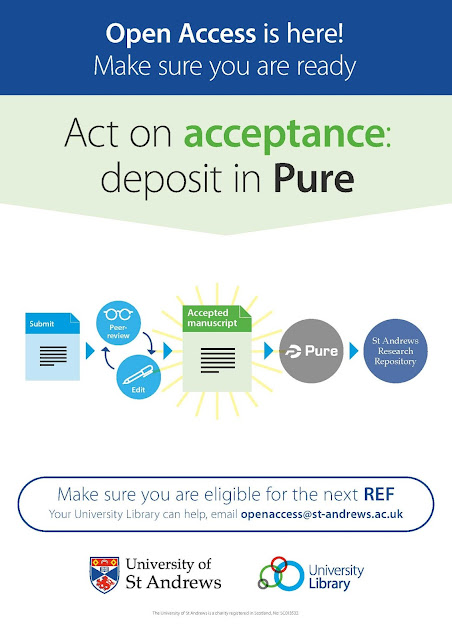The Policy for open access in the post-2014 Research Excellence Framework is in force from April 1 2016, and states "to be eligible for submission to the next REF, authors’ final peer-reviewed manuscripts must have been deposited in an institutional or subject repository". For St Andrews, this means that all researchers must deposit the accepted version of journal articles and conference proceedings in Pure as soon after acceptance as possible. In common with other institutions, the Library has been promoting the message ‘Act on acceptance: deposit in Pure’. This applies not just for REF and all authors should deposit their manuscripts. The Library's Open Access support team can help with this process.
 | ||||
| Poster with message 'Act on acceptance: deposit in Pure' |
To help researchers we can:
- answer queries about Open Access options, embargoes, copyright and licensing
- check relevant OA policies for you
- provide guidance and training on how to deposit – see our guide, checklist and video
- visit Schools on request to give presentations or workshops
- provide funding in some cases for 'Gold' Open Access







